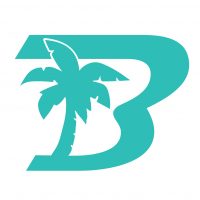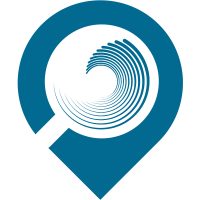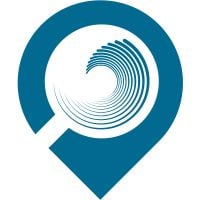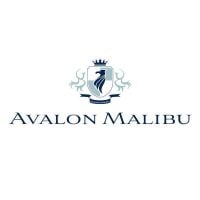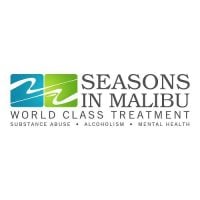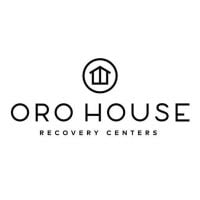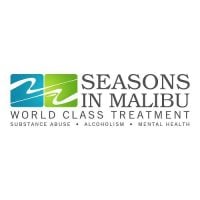Broad Beach Recovery Center
Drug Rehab Center in Malibu, California
Broad Beach Recovery Center in Malibu, CA is an accredited recovery facility that offers personalized treatment plans and therapies to help individuals suffering from addiction achieve long-term sobriety.
About Broad Beach Recovery Center in California
The Meadows Malibu, formerly known as Broad Beach Recovery, is nestled in Malibu, California, offering a luxurious setting for adult drug and alcohol rehabilitation. With a holistic focus on healing, this facility provides medically supervised detox, intensive inpatient care, and aftercare support, catering specifically to young adults, trauma survivors, and those with co-occurring mental health and addiction issues. Among its standout features are its private, home-like amenities and a comprehensive, evidence-based approach to recovery.
Accredited by The Joint Commission, The Meadows Malibu emphasizes a personalized recovery experience in a serene environment. The center accepts private insurance and self-pay, ensuring access to their premium services, including round-the-clock medical supervision during detox and a range of therapeutic modalities tailored to individual needs.
- Luxurious Private Setting: Enjoy recovery with ocean views, private rooms, chef-prepared meals, and onsite fitness and recreational amenities.
- Comprehensive, Evidence-Based Treatment: Integrates 12-step and SMART recovery principles with individualized counseling, including DBT and trauma-informed care.
- Specialized Programs: Offers dedicated services for young adults, trauma survivors, and individuals with co-occurring addiction and mental disorders.
The Meadows Malibu addresses a spectrum of addictions, including substance abuse, opioid addiction, and alcoholism, employing a variety of treatment methods such as detox, inpatient care, DBT, EMDR, and aftercare planning to support long-term sobriety.
Genders
Ages
Modality
Additional
Accreditations

JCAHO
Conditions and Issues Treated
Substance Abuse Treatment is important when getting sober, as it helps addicts learn the skills they need to live a clean life. There are many different kinds of recovery treatment, including but not limited to medication-assisted therapy, behavioral therapeutic approaches, self-help groups, and counseling. Each treatment has its benefits that help addicts recover.
Counseling can help addicts learn the skills they need to live sober lives. It can be used to treat underlying mental health issues, like depression or anxiety, that could lead to relapse. Counseling can also help people find work, deal with family problems, and learn to manage living without drugs.
With so many people addicted to opioids, we need to help those who want to quit. The cycle begins when opioid addicts take opioids for a painful injury. When someone starts taking their medication differently or in excess, it means they’re addicted and at risk of overdosing.
In , detoxing from these types of treatments is the most effective way to beat this. Most facilities begin with medical assistance and then provide counseling services; rehabilitation follows after successful treatment.
Dual diagnosis refers to someone who has both an addiction and a mental or emotional illness. Dual diagnosis treatment includes therapy for both issues simultaneously, allowing for effective treatment of either.
Sometimes people with addiction disorders also have co-occurring disorders like depression, anxiety, bipolar disorder, etc. These require specialized treatment programs that address both drug and alcohol addiction as well as psychiatric illnesses. Some rehabilitation facilities provide patients with co-occurring disorders a program with highly integrated services and a clean, distraction-free environment.
Levels of Care Offered
This center offers a variety of custom treatment tailored to individual recovery. Currently available are Aftercare Support, Detox, Dual-Diagnosis, Inpatient, Residential, with additional therapies available as listed below.
Detox is an integral part of recovery and often very hard. Detoxification is the process of letting the body remove the drugs in it. It addresses the physical aspect of addiction. Detox from drugs can be unsafe as the patient undergoes withdrawal symptoms that range from headaches, vomiting, body aches to seizures and cardiac arrests. The main purpose of detox is to keep the drug users comfortable as the drugs leave their system.
Quitting cold turkey is not recommended and can lead to many issues. Detox is best done under medical supervision so that a team of experts can monitor the side effects and complications. Detox, alone, does not guarantee sobriety as the underlying psychological issues are not addressed.
Inpatient treatment is a form of recovery used in drug rehab. Inpatient recovery offers individual therapy, groups, and family therapy to ensure that the addict has the best recovery possible. A variety of treatments are provided in this type of recovery, depending on what treatment the addict needs at that particular time.
The length of inpatient addiction treatment depends on the addict and their addiction. Inpatient rehabilitation can last anywhere from 30 days to 90 days, depending on how severe the drug abuse is. Inpatient rehab is a costly drug treatment, costing anywhere from $30k- to $60k. However, insurance often offers help in covering these costs.
Residential treatment programs are those that offer housing and meals in addition to substance abuse treatment. Rehab facilities that offer residential treatment allow patients to focus solely on recovery, in an environment totally separate from their lives. Some rehab centers specialize in short-term residential treatment (a few days to a week or two), while others solely provide treatment on a long-term basis (several weeks to months). Some offer both, and tailor treatment to the patient’s individual requirements.
The accomplishment of completing a drug or alcohol treatment program is just the first step. Once that is complete, aftercare support comes into play. This includes helping people adjust to life without substances outside of guidelines with assistance like getting sober living accommodations and career counseling and AA/NA programs for those who are struggling between sobriety or want continued help in maintaining it once they have completed their initial rehabilitation at an addiction facility.
Aftercare comprises services that help recovering addicts readjust to normal day-to-day activities while working on specific issues. These problems include psychiatric issues, family problems caused by substance abuse, continuing education pursuits if desired during rehab, etc. These can last up to one year+ depending on what’s needed most urgently upon completion of earlier stages.
Therapies & Programs
Different people react differently to various treatment options. Some drug rehabilitation centers offer individualized treatment that caters to the specific needs of a drug addict. The best treatment option varies on an individual depending on the type of drug abused, life history, medical condition of the person, social circumstances, and the environment they live in now.
When a person enters drug rehab, they usually have anti-drug associations such as withdrawal symptoms, stress, cravings, etc. The first step of drug rehab is to detoxify the body from any residual substances in it. Drug rehabilitation centers usually employ trained medical professionals to help in this process. Usually, the initial detoxification lasts for five days, where the person is monitored under close supervision.
Family therapy sessions typically involve the addict and their family members. During these sessions, a therapist will work with everyone involved to help them understand addiction and find healthy ways of coping without substance abuse.
Some addicts might feel embarrassed about their substance abuse problems. By encouraging family members to attend these sessions, therapists can show addicts that they’re not alone in dealing with addiction. Therapists can also work with family members to help them understand addiction and learn how to offer support and encouragement to their loved one as they deal with substance abuse issues.
Attending group therapy at Broad Beach Recovery Center in , is a useful way for those seeking sobriety to realize they aren’t the only one going through it.
This is when a group of people on different recovery phases get together and talk about what they’re going through, their triggers, successes, and failures. This can include alternative types of therapies too! Group therapy may occur on an outpatient or inpatient basis with groups that have no pre-existing relationships outside the session, unlike support groups where everyone already knows each other beforehand.
Trauma therapy is a form of therapy used to help people process and understand past traumas. This can help struggling addicts, as many people turn to drugs or alcohol to mask the pain of their past. Trauma therapy can be done in several ways, such as through visualization, discussion, and writing down thoughts and feelings. The goal is to help the individual understand why they are having problems coping with certain situations and changing how they think and react to things. This is often done in tandem with other therapies to treat the underlying issues associated with addiction.
The idea behind trauma therapy is that while some people can experience traumatic events and not have lasting psychiatric symptoms, many others will. In these cases, memories get hidden from consciousness but continue to influence how the person processes and copes with things in their life. They may avoid situations that resemble what happened or become suddenly angry or irritated to a situation that reminds them of a past event. With the help of a therapist, people can go back over memories and experiences. This helps them understand why they are having problems coping with certain situations and changing how they think and react to things.
This type of cognitive-behavioral therapy helps people understand how their thoughts, behaviors, and feelings are interconnected. It can help patients with borderline personality disorder gain control over their actions and stop self-harming thoughts and attempts.
Cognitive Behavioral Therapy is a type of psychotherapy that helps people address the thoughts and behaviors that may have led to their addiction. It also helps change negative thoughts into positive ones and promotes healthy communication between addicts and those around them. CBT is an efficient treatment for individuals suffering from all sorts of addictions.
Cognitive Behavioral Therapy (CBT) focuses on the underlying thoughts and behaviors that caused the problem of addiction in the first place and may cause a relapse. Negative feelings are common in drug abuse disorders, but they can lead to co-occurring disorders if not recognized. CBT involves strategies that help to change the behavior pattern by restructuring negative thoughts into positive ones. It helps to remove these feelings, and it provides long-term benefits. Also, CBT promotes self-awareness, self-control and can be administered as a mono-therapy or as part of combination therapy.
Eye Movement Desensitization and Reprocessing (EMDR) is a treatment modality used with patients suffering from post-traumatic stress disorder (PTSD) or drug and alcohol cravings. EMDR is considered to be a form of cognitive-behavioral therapy (CBT) and exposure therapy. It is believed to help patients reprocess their memories, thoughts, and emotions to heal from the trauma of their experience.
Life Skills Services offered at Drug Treatment Centers assists addicts in their recovery by teaching them healthy coping mechanisms that will aid them in becoming sober, focussing on helping people enter into, and maintaining long-term sobriety. Drug Treatment Centers provide Life Skills Services at varying levels of intensity, specific to the needs and requirements of each patient.
Life Skills Services offered at Drug Treatment Centers assists addicts in their recovery by teaching them healthy coping mechanisms that will aid them in becoming sober, focussing on helping people enter into, and maintaining long-term sobriety. Broad Beach Recovery Center in Malibu, California provide Life Skills Services at varying levels of intensity, specific to the needs and requirements of each patient.The benefits of Life Skills Services offered at Drug Treatment Centers:
- Restores hope and empowerment — Helps addicts believe that recovery is possible and instills a new confidence in their ability to achieve a positive, drug-free future
- Enhances family involvement — Encourages families to get involved in the recovery process and supports their understanding and encouragement of healthy behavior.
- Increases patient’s compliance — Helps patients take responsibility for and ownership of their recovery and encourages continued progress
- Reduces relapse rates — Encourages long-term abstinence and emphasizes the importance of establishing sober support systems.
A 12-Step Program is used in treatment to help addicts stop abusing drugs and alcohol. The steps of the program include:
- Making amends.
- Believing in a higher power.
- Taking action to improve their life and admitting that they have a problem with substance use.
A cognitive restructuring step aims to change the way an individual thinks about their addiction to recover and live a life free of substance abuse. This method is extremely popular and very successful for many people who choose it as their treatment option.
Good nutrition can be difficult for people recovering from addiction because they may not feel like eating while they are experiencing the physical and emotional side effects of detoxing.
Nutrition therapy can help addicts in the following ways:
- Helps individuals to understand which foods promote good health and support recovery that will assist them during detox
- Provides guidance and education about how to maintain a nutritious diet so they can stay healthy during recovery
- Improves their overall health and well-being, which can reduce the severity of substance withdrawal symptoms.
Nicotine replacement therapy is a popular method of treatment that helps individuals overcome their addiction to cigarettes by providing them with safer alternatives. Nicotine replacement options can include:
- Inhalers
- Gum
- Patches
These treatments are often used in combination with other therapies, such as cognitive behavioral therapy or motivational interviewing, to help individuals more easily transition into a smoking-free lifestyle.
Patient Experience
Creative Arts
If you’re looking for a drug addiction treatment program, you might want to consider creative arts therapy. This type of therapy can help patients express their thoughts and feelings they might not be able to otherwise. Having a creative outlet is also an excellent way to manage anxiety and deal with difficult emotions. In some cases, expressive therapy may include reading, music, theater, art, and more. A creative arts therapy program may be available at Malibu, .
Experiential Therapy at Broad Beach Recovery Center
Experiential therapy is a type of therapeutic approach that focuses on having patients work through problems, issues, or emotions by engaging directly in some real experience. It occurs face-to-face with a therapist who helps these people to explore their feelings first hand. The hope is that when this happens, the patient will feel driven to turn away from their destructive behavior and instead take up positive behaviors or coping mechanisms. Direct experience methods, role play, psychodrama, interpersonal and social learning are a few different forms of experiential therapy.
Equine Therapy in California
When you sign up for equine therapy at our facility in Broad Beach Recovery Center , these majestic creatures are groomed and cared for during your stay. This allows those recovering from addiction to process their lives without confronting them as in traditional therapies.
Instead of confronting situations as in other forms of psychotherapy, patients can use this time to interact with the animals around them while processing their thoughts by helping to care for them. Intuitive horses respond to the energy of patients, whether they can see it or not.
Fitness Therapy
To recover from addiction, one needs to recover the body and mind. Addiction can harm your health in many ways. Learning how to take care of yourself includes physical fitness. Exercise releases feel-good hormones and further contributes to positive self-esteem. Self-discipline can be practiced through an exercise regimen as you learn how to take care of yourself. Studies have shown that exercise increases abstinence rates, ease withdrawal symptoms and improve depressive symptoms for those in Malibu, CA.
Payment Options Accepted
For specific insurance or payment methods please contact us.
Is your insurance accepted?
Ask an expert, call (888) 674-0062
Additional Details
Specifics, location, and helpful extra information.
Malibu, California 90265 Phone Number(310) 464-2424 Meta DetailsUpdated April 15, 2024
Staff Verified
Broad Beach Recovery Center Patient Reviews
There are no reviews yet. Be the first one to write one.
Malibu, California Addiction Information
More than 3 million of California's citizens are addicted to illegal drugs. Almost 800,000 people use hard drugs, almost 5 million use marijuana, and another 2.1 million abuse alcohol every year. Other substance abuse issues such as binge drinking and teen drug use are also common. Many illegal drugs such as cocaine, heroin, methamphetamine, and marijuana are smuggled into the state from Mexico.
8.4% of Malibu residents reported using illicit drugs in the past. The number of overdose deaths in Malibu has quadrupled since 1999. Malibu's proximity to Los Angeles makes it a hub for illegal drug activity. 58% of residents who abuse drugs started using them before they turned 18. About 12% of Malibu residents have alcohol use disorder. Several rehab centers are located in Malibu to help individuals struggling with addiction.
Treatment in Nearby Cities
- Chula Vista, CA (140.6 mi.)
- Victorville, CA (95.5 mi.)
- Calabasas, CA (12.8 mi.)
- Lemon Grove, CA (138.1 mi.)
- Redlands, CA (95.6 mi.)
Centers near Broad Beach Recovery Center
The facility name, logo and brand are the property and registered trademarks of Broad Beach Recovery Center, and are being used for identification and informational purposes only. Use of these names, logos and brands shall not imply endorsement. RehabNow.org is not affiliated with or sponsored by Broad Beach Recovery Center.


